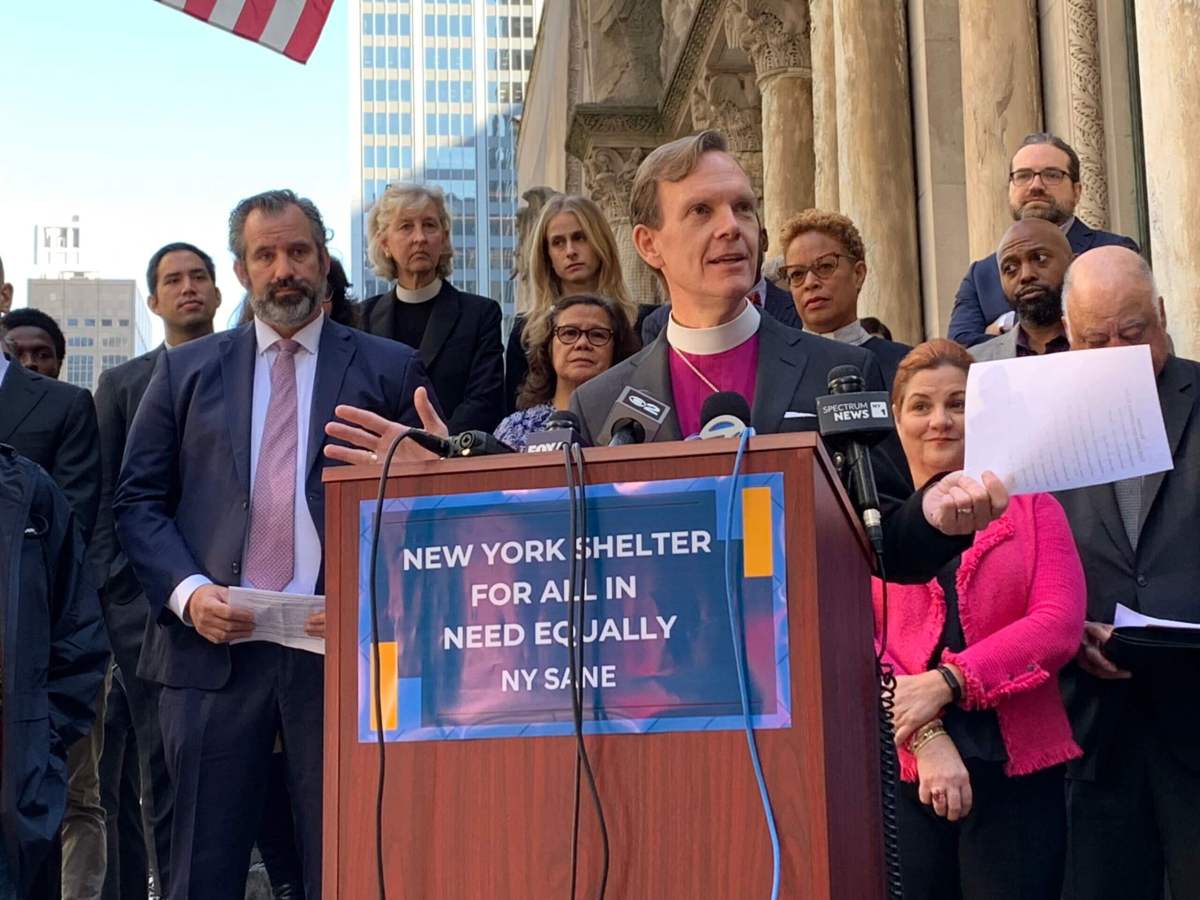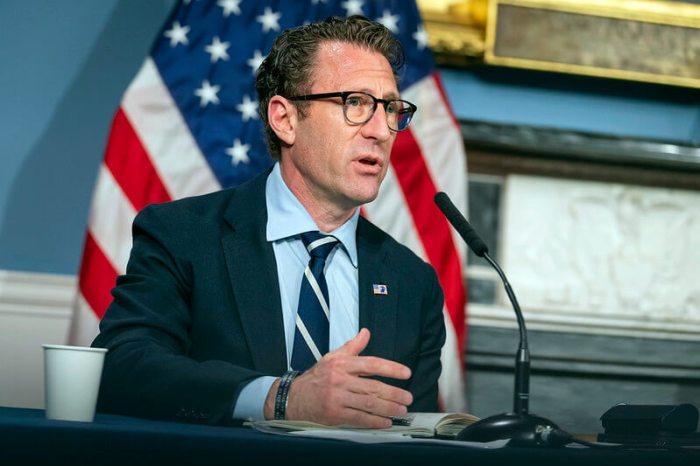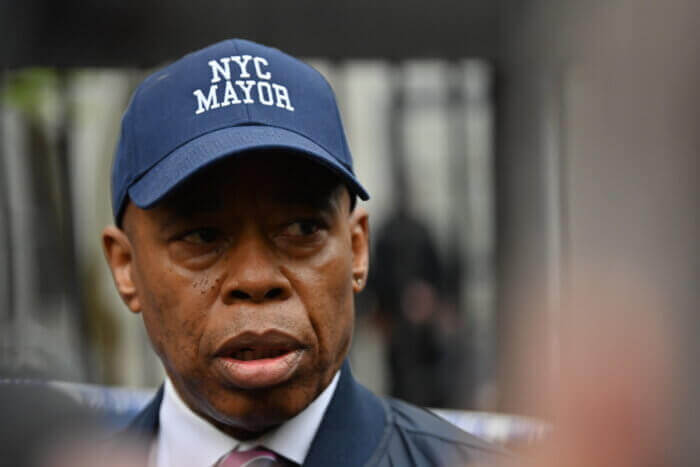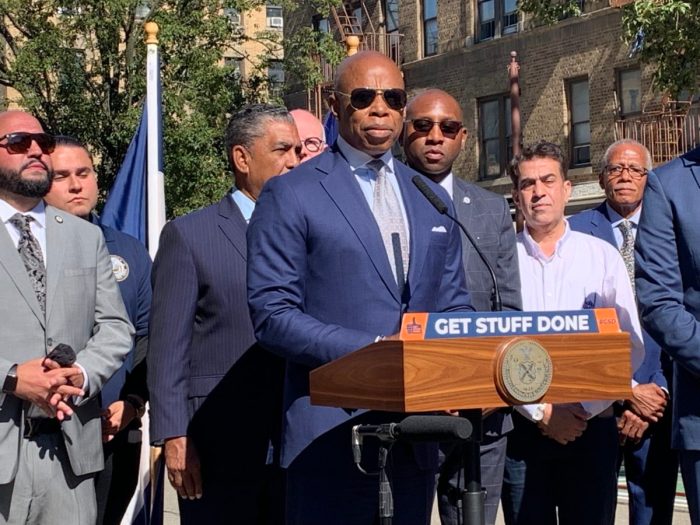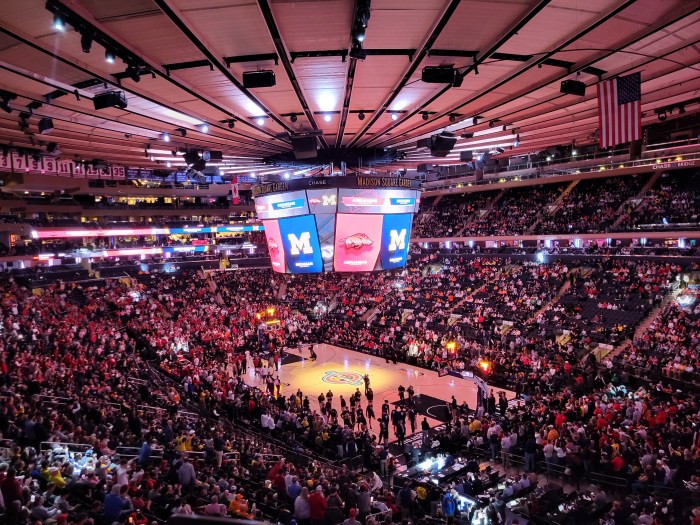Mayor Eric Adams’ quest to roll back the city’s right-t0-shelter mandate amid the ongoing migrant crisis received new opposition Thursday from a coalition of advocates, clergy leaders and labor groups.
The alliance, dubbed the “New York Shelter for All in Need Equally Coalition” (NY SANE Coalition), is made up of groups including the Legal Aid Society, the shelter provider Win, the Episcopal Diocese of NY, 1199 SEIU United Healthcare Workers East and many others. It was formed to counter the city’s latest request to a Manhattan Supreme Court judge to relieve it of its shelter obligations.
At a Thursday press conference announcing NY SANE, Bishop Matthew Heyd of the Episcopal Diocese of NY, said the group was formed to “affirm” the city’s right-to-shelter and champion “practical solutions” to the crisis that has arisen from having to house tens of thousands of new arrivals.
“This diverse group of leaders from across New York City are here this morning to affirm our historic right-to-shelter and to say together that we’re ready to be part of a broad coalition to welcome asylum seekers, and have practical solutions to the humanitarian crisis that is facing our city right now,” Heyd said.
Christine Quinn, president and CEO of Win and former City Council speaker, said the broad coalition shows there is widespread opposition to suspending the city’s shelter mandate.
“I think the mayor thought he was gonna sneak this by,” Quinn said. “That he was gonna repeal the right-to-shelter. He was gonna throw new arrivals out on the street, like they weren’t human beings, and nobody was gonna notice. Well, you know what? He didn’t know New York at all. Because look at this.”
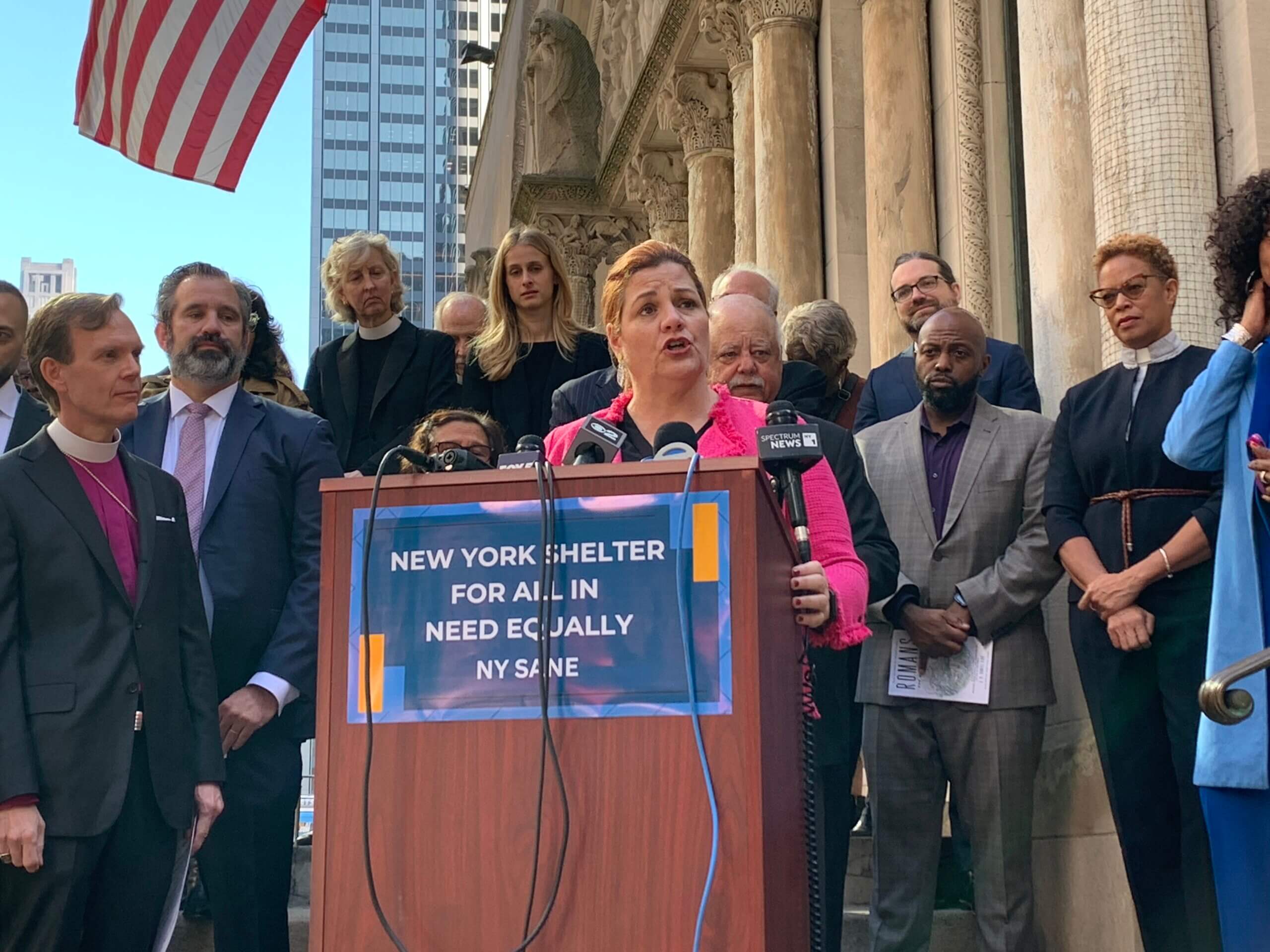
At the event, the group also signed a statement of five principles that they asked the mayor and governor to abide by in letters to each of the officials.
Those values include: not eroding the right-to-shelter “in any way;” always providing families in need of shelter with placements in locking rooms; for the city, state and federal governments to work together to develop “practical and humane” solutions to the crisis; that the governor develop a statewide “decompression and resettlement” plan to move migrants out of the city to other New York localities; and a recognition that the “only real answer to homelessness is housing.”
Shelter battle in the courts
The formation of the group comes after the mayor’s office last week sent a revised request to a Manhattan Supreme Court asking that it be exempted from its shelter obligations for single adults when there’s a surge in the number entering shelter paired with a declared state of emergency at either the city or state level. The request, which was the third the city has made of the court since May, formally received backing from Hochul’s office in its own letter to the court on Wednesday.
Adams’ administration argues the rolling back the right-to-shelter is necessary as the city has seen over 126,700 migrants arrive here since last year and thousands more arriving each month. The city is currently housing more than 63,000 migrants and says it is at capacity.
Adams’ spokesperson Jonah Allon, in an emailed statement, said that while the administration has sheltered, fed and provided for tens of thousands of migrants over the past year it is “out of room.” He said the city cannot continue to handle the crisis without significant financial support and resources from the federal government and without that the shelter system will “buckle under the strain.”
“The status quo cannot continue, and without temporary relief from the consent decree — which would put New York City on equal footing with the rest of the state — we face difficult choices,” he said. “We have consistently engaged with community-based organizations, faith institutions, and advocates and hope they join our call for more assistance as we manage this unprecedented man-made humanitarian crisis.”
Legal Aid, which represents the Coalition for the Homeless in the ongoing case that established right-to-shelter — Callahan v. Carey, responded to the city’s letter in its own missive to the court Wednesday evening. In that letter, the legal organization argued the city’s latest attempt to suspend the right-to-shelter would effectively “gut” the longstanding provision, which could leave thousands of homeless people exposed to the elements as the city heads into winter.
David Jones, president of the Community Service Society and MTA Board member, said doing away with the right-to-shelter at this time will “only compound the city’s homelessness problem, putting more people in the street as we approach what looks like it’s going to be a very cold and snowy winter.”
He added that removing the right-to-shelter will lead to the formation of mass homeless encampments familiar in other major cities like San Francisco, CA, which will hurt the city’s economic recovery from the COVID-19 pandemic.
Adriene Holder, chief attorney of the civil practice at Legal Aid, said that through court-supervised mediation over the case so far, her organization has given the city many recommendations for stemming the crisis without doing away with its shelter obligations.
The city has followed through on some of those recommendations, Holder said, like successfully advocating for Temporary Protective Status to be extended and redesignated for Venezuelan migrants who came to the U.S. before July 31 of this year. But it has failed to follow through on several others that include moving longtime homeless New Yorkers into permanent housing more speedily.
“It’s about moving people who are already languishing in the shelter system out more rapidly,” Holder said. “A lot of provisions of how it is that we get people to subsidies and connect them much more quickly, people already in the shelter system who deserve to be out of it, that would create space for people who are coming into it.”
Read more: Council Member Kagan Switches Party to Challenge Brannan



